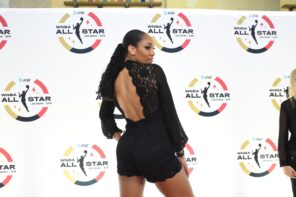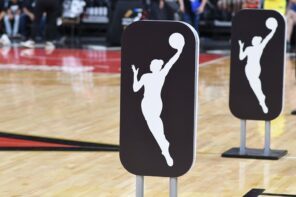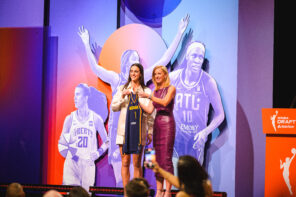By Scott Mammoser
Meg Sanders has enjoyed a long and successful career in women’s basketball, but it was in a sport little known to most Americans where she found perhaps her greatest triumph.
Sanders, who has been a part of Charli Turner Thorne’s staff at Arizona State University for most of the past 15 years and is currently the special assistant to the head coach, was one of a select few who represented the United States in handball at the 1988 Seoul Olympics. While the Sun Devils are inching to get back in the NCAA Top 25 and are fresh off two comeback wins over BYU and Idaho State, the International Handball Federation World Championships continue through this weekend in Kumamoto, Japan. Sanders reflected on her unlikely journey.
“The 1984 Olympic Games were in Los Angeles,” Sanders said, “and the team handball venue was at my college, Cal State Fullerton. We hosted the event there. One of the facilities directors asked if I wanted a summer job. I said, ‘Does it pay?’ and he said ‘yes.’ I said ‘I’m there.’ I worked the Olympics as an usher, and that was my first time ever seeing the sport. I thought, ‘This sport is amazing, it combines all of the things that I love.’ I thought it would be something I would try after I was done with college basketball, as I was going into my senior year. So, as a result of the games being there, we had a club team that formed, and after basketball, I decided to practice a little bit, and they had a tournament. I was seen at the tournament, and a lot of the Olympic players form 1984 had retired, so they were looking for some young players to groom for the national team, so that is kind of how it started.”
Sanders went on to try out for the western team of a four-team pre-Olympic tournament, consisting of all Americans. Besides that, her opponents were almost always European teams.
“I was able to travel all around the world and play other nations in high-level tournaments,” said Sanders, who formerly was once also the head basketball coach at Northern Arizona University.
The U.S. defeated Canada at the 1987 Pan American Games at Indianapolis to clinch one of eight spots in the Seoul Olympics.
“It was unreal,” Sanders said. “Being able to be in the Olympic village with all of the other athletes, and also to be in the Opening Ceremonies and having people cheer for you. Just having that special event where you worked for so long, three years we worked together, traveled all over, we trained so hard, and to have all of that come together at such an amazing sport event, that was incredible.”
The U.S. would finish in seventh place in the tournament, with the host Koreans winning the gold medal. The program qualified to Barcelona in 1992 and automatically to Atlanta in 1996, but it has been absent from all Olympics and the biennial World Championships since. Recently, it placed fourth at this summer’s Pan American Games in Peru, which advanced the victorious Brazilians to the Olympics.
“I stayed very involved for about eight or nine years after I stopped playing,” Sanders added. “I started a club team at Fresno State, where I was a student and coach, a men’s and women’s team. I taught team handball as a physical education class, and we went to Nationals. Some of my guys were on the national training squad. After I was married and started having family, I had to devote all of my time to basketball. But I still love it, I would do anything to move the sport forward because it definitely deserves it.”
Sanders said she could use cross-over skills from not only basketball, but softball, volleyball and track in her handball game. As younger athletes are specialized to excel at one singular sport in the present time, she said the transition would take longer for them.
“Having an open environment,” she continued the similiarities to hoops, “where you are reading and reacting and playing with other teammates and advancing the ball, passing and catching and strategy, playing team defense and offense, creating for other people. The biggest difference is probably throwing, so if you don’t grow up throwing and developing that, it’s something that could take a bit of time.”
So how can a sport grow in the United States, where there is already such a crowded landscape?
“I think it’s exposure and eduction,” Sanders listed as ways to grow the sport domestically. “I think its very difficult ot have a sport being recogninzed if it’s not being done in the school system. You have to get it very grass roots. I think if people had an answer for that, it would have been done by now, because it’s not something that’s brand new. In Europe, they have professional and pay players, it’s very popular, probably third to basketball and soccer.”
You can check out the semifinals and final of the World Championship on the Olympic Channel Friday and Sunday. There will be three more qualifying tournaments in March to decide the final six spots for the Olympics, which begin on July 24 in Tokyo.



